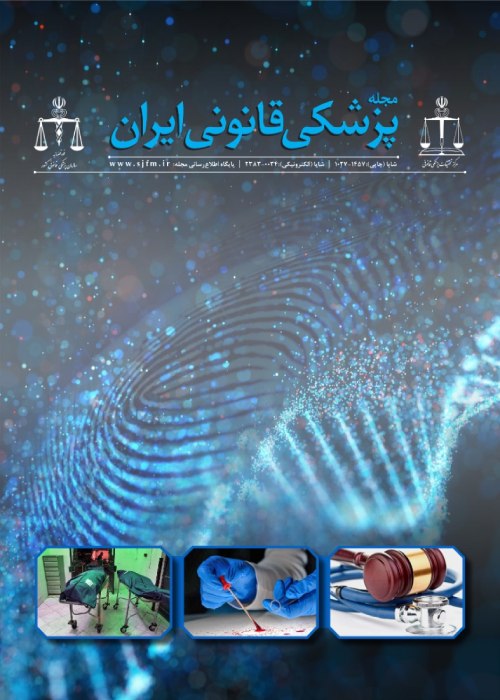Evaluation of attitudes and information of embryo recipient couples about medico-legal aspects of embryo donation in Iran
Author(s):
Abstract:
Background and Aim
The treatment of infertility by donating embryo is one of the methods to help fertility in couples suffering of infertility. In Iran, after it had been legitimized by religious dignitaries, the way to the implementation of such a method has been paved through a bill passed by the parliament in 2003, But a prerequisite for donating embryo is attention to more ethical Considerations which the legislator must explain it specifically and stop the unethical misuses. The applicant also must have more awareness to the medical and legal conditions. Materials and Methods
In this descriptive study, 86 couples applying to receive donated embryo over a period of six months were interviewed using the census method. The filled questionnaires yielded the data which were later analyzed using tenth version of Statistical Package for the Social Sciences (SPSS). Findings
Concerning study of infertility, in 93.9% of cases the cause of infertility was male. Any of the couples wasnt afflicted by drug addiction, AIDS, Hepatitis and Mental illness. 91.5% of the couples had no information about the identity of the donor and left the choice to the centre. 70.7% laid importance on moral characteristics 72% of them considered the genetic traits of the ensuing child much important. 59.8% of the couples never thought about the prospective relationship of the ensuing child with the donor as well as the identity problems coming out of the practice. 85.4% of couples would never disclose the embryo donation to the ensuing child. Conclusion
Anonymity of donor and recipient couples makes less legal and sentimental problems for the parents in future. In the other hand, the children’s human right necessitates to inform the manner of conception to them. By the increasing of assisted reproductive birth, the risk of ignorant incest and genetic anomalies will be augmented. These problems lead the parents to tell the truth to their children who were born by embryo donation. As the embryo donation is almost a new technique in our country, a wide distance is seen between some of the attitudes and behaviours with the standard experienced advised one, especially in disclosure the manner of conception to the child and family. More extensive psychological consultation seems necessary to go underway. Moreover, couples need to know more about the legal aspects of embryo donation and how they would have a stronger family relationship between parents and children.Language:
Persian
Published:
Forensic Medicine, Volume:13 Issue: 2, 2007
Page:
102
magiran.com/p444704
دانلود و مطالعه متن این مقاله با یکی از روشهای زیر امکان پذیر است:
اشتراک شخصی
با عضویت و پرداخت آنلاین حق اشتراک یکساله به مبلغ 1,390,000ريال میتوانید 70 عنوان مطلب دانلود کنید!
اشتراک سازمانی
به کتابخانه دانشگاه یا محل کار خود پیشنهاد کنید تا اشتراک سازمانی این پایگاه را برای دسترسی نامحدود همه کاربران به متن مطالب تهیه نمایند!
توجه!
- حق عضویت دریافتی صرف حمایت از نشریات عضو و نگهداری، تکمیل و توسعه مگیران میشود.
- پرداخت حق اشتراک و دانلود مقالات اجازه بازنشر آن در سایر رسانههای چاپی و دیجیتال را به کاربر نمیدهد.
دسترسی سراسری کاربران دانشگاه پیام نور!
اعضای هیئت علمی و دانشجویان دانشگاه پیام نور در سراسر کشور، در صورت ثبت نام با ایمیل دانشگاهی، تا پایان فروردین ماه 1403 به مقالات سایت دسترسی خواهند داشت!
In order to view content subscription is required
Personal subscription
Subscribe magiran.com for 70 € euros via PayPal and download 70 articles during a year.
Organization subscription
Please contact us to subscribe your university or library for unlimited access!


